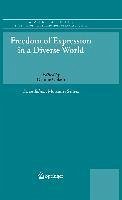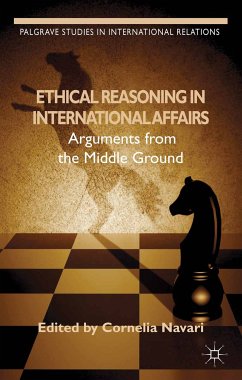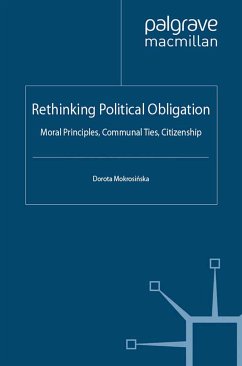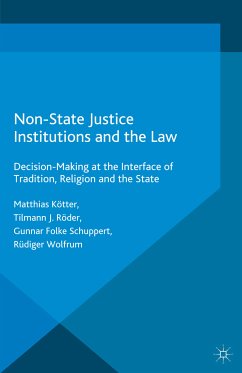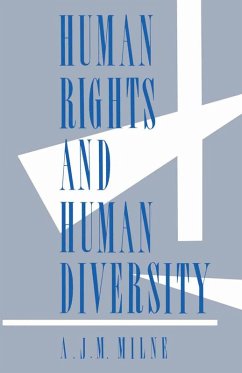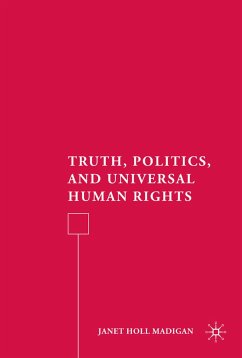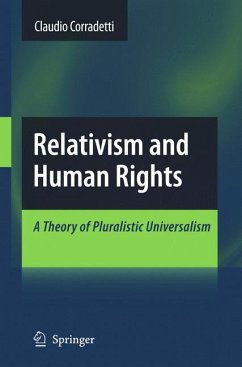
Relativism and Human Rights (eBook, PDF)
A Theory of Pluralistic Universalism
Versandkostenfrei!
Sofort per Download lieferbar
88,95 €
inkl. MwSt.
Weitere Ausgaben:

PAYBACK Punkte
44 °P sammeln!
Can human rights principles admit degrees of contextual variations? Are our cultures condemned to a formally rigid standard of universalist hegemony? This work provides an innovative contribution to the legal-philosophical understanding of human rights theory. While advancing a post-metaphysical reconstruction for the notion of human rights, it defends an original perspective on the relation between universal validity and cultural pluralism. By rejecting the challenges of relativism and classical abstract universalism, this model reinterprets discursive theory in the light of dialectical recog...
Can human rights principles admit degrees of contextual variations? Are our cultures condemned to a formally rigid standard of universalist hegemony? This work provides an innovative contribution to the legal-philosophical understanding of human rights theory. While advancing a post-metaphysical reconstruction for the notion of human rights, it defends an original perspective on the relation between universal validity and cultural pluralism. By rejecting the challenges of relativism and classical abstract universalism, this model reinterprets discursive theory in the light of dialectical recognition and judgmental exemplarity. The result is an enriched substantive notion of universalism oriented to the safeguard of situated authenticity. Pluralistic universalism considers that, while formal filtering criteria constitute unavoidable requirements for the production of potentially valid arguments, the exemplarity of judgmental activity, in its turn, provides a pluralistic and retrospective reinterpretation for the fixity of such criteria. While speech formal standards grounds the thinnest possible presuppositions we can make as humans, the discursive exemplarity of judgments defends a notion of validity which is both contextually dependent and "subjectively universal". According to this approach, human rights principles are embedded within our linguistic argumentative practice. It is precisely from the intersubjective and dialogical relation among speakers that we come to reflect upon those same conditions of validity of our arguments. Once translated into national and regional constitutional norms, the discursive validity of exemplar judgments postulates the philosophical necessity for an ideal of legal-constitutional pluralism, challenging all those attempts trying to frustrate both horizontal (state to state) and vertical (supra-national-state-social) on-going debates on human rights.
Dieser Download kann aus rechtlichen Gründen nur mit Rechnungsadresse in A, B, BG, CY, CZ, D, DK, EW, E, FIN, F, GR, HR, H, IRL, I, LT, L, LR, M, NL, PL, P, R, S, SLO, SK ausgeliefert werden.




